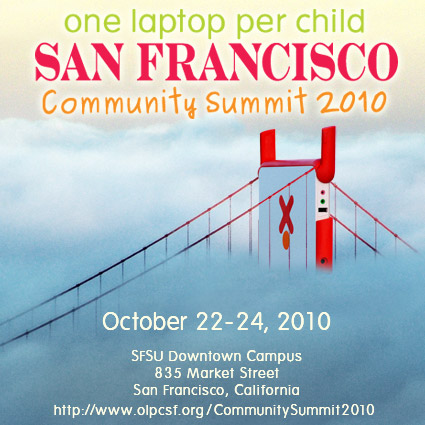OLPC’s global community of contributors and volunteers is gathering for its largest ever meeting to date, on the weekend of October 22-24, in San Francisco! Thanks to the OLPC San Francisco Community led by Professor Sameer Verma, and our gracious host San Francisco State University. If you want to take a stand for global education rights For All in this 21st century, now is your time — OLPC’s Global Community is a friendly and supportive network inviting you too to Stand & Deliver:

The OLPC SF Community Summit 2010 will be a community-run event bringing together educators, technologists, anthropologists, enthusiasts, champions and volunteers. We share stories, exchange ideas, solve problems, foster community and build collaboration around the One Laptop per Child project and its mission worldwide.
Now we’re taking the next step, bringing together the voices of OLPC experience, Sugar Labs, the Realness Alliance — and yourself. Check out our growing list of social entrepreneurs who’ve already signed up from Uruguay, Peru, Paraguay, Argentina, Nicaragua, Africa, Afghanistan, India, Philippines, France, UK, Italy, Belgium, Austria, Canada, Birmingham and beyond. Then please consider joining us, adding your own contribution/testimonial and photo!

